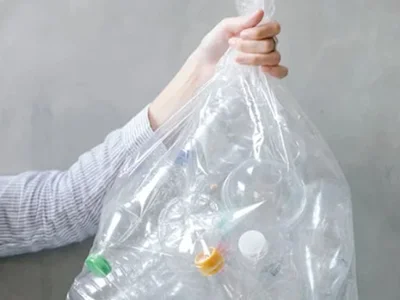The 4-Minute Rule for Reclaim Waste
The 4-Minute Rule for Reclaim Waste
Blog Article
Little Known Facts About Reclaim Waste.
Table of ContentsThe Basic Principles Of Reclaim Waste Not known Facts About Reclaim WasteThe smart Trick of Reclaim Waste That Nobody is Talking AboutA Biased View of Reclaim WasteSome Known Details About Reclaim Waste
Residential sewer waste refers to the waste and items from a household septic container. The proper monitoring and disposal of domestic sewer waste require fluid waste to be transferred to a sewer treatment plant where the correct techniques and tools are applied to detoxify and dispose of waste.
Commercial waste frequently consists of potential risks, such as flammable products or a mixture of liquid and solid waste products, and calls for a more innovative and comprehensive disposal process. The disposal of industrial waste generally entails the filtration of waste before transport to guarantee secure and proper disposal. Hazardous waste is created from by-products and runoff of commercial procedures and manufacturing.
This sort of waste can not use the same sewage management transport or processes as septic or business liquids. The hazardous waste administration procedure calls for the evaluation and testing of fluid waste prior to it goes through the disposal procedure (liquid waste disposal). Runoff waste is the liquid waste that comes from overflow and excess stormwater in very booming locations or cities
Overflow waste can create contamination and flooding otherwise dealt with appropriately. Find out more concerning sewage system cleansing and waste monitoring. Ensuring appropriate waste administration can protect against disasters and decrease environmental harm. Both individuals in domestic settings and specialists in business or production industries can gain from comprehending the processes and regulations of liquid waste administration.
The 9-Minute Rule for Reclaim Waste
Contact PROS Solutions today to find out about our waste administration and disposal solutions and the correct methods to look after the fluid waste you generate.
(https://anotepad.com/note/read/pkncyr85)This supposed 'wastewater' is not only an essential resource yet, after treatment, will certainly be released to our land, waterways or the ocean. Used water from toilets, showers, bathrooms, kitchen sinks, laundries and industrial processes is understood as wastewater.

water made use of to cool down equipment or tidy plant and devices). Stormwater, a kind of wastewater, is runoff that streams from agricultural and city locations such as roofs, parks, gardens, roadways, paths and gutters into stormwater drains pipes, after rain. Stormwater flows untreated straight to neighborhood creeks or rivers, at some point getting to the sea.
The Reclaim Waste Ideas
In Queensland, many wastewater is treated at sewage treatment plants. Wastewater is transported from domestic or commercial websites with a system of drains and pump stations, referred to as sewerage reticulation, to a sewer treatment plant. City governments develop, maintain and operate most sewage treatment plants. Operators are certified under the Environmental Defense Act 1994 to release cured wastewater at an acceptable environmental standard into rivers.
The Division of Natural Resources suggests city governments concerning handling, operating and preserving sewerage systems and treatment plants. In unsewered locations, regional governments might need homeowners to set up specific or family sewer treatment systems to treat domestic wastewater from commodes, cooking areas, washrooms and washings. The Division of Natural Resources authorises using family systems when they are shown to be effective.
Most stormwater obtains no therapy. In some new neighborhoods, treatment of some stormwater to remove clutter, sand and crushed rock has begun making use of gross contaminant traps. Wastewater treatment takes place in four phases: Eliminates strong matter. Larger solids, such as plastics and other things incorrectly released to sewers, are gotten rid of when wastewater is travelled through displays.
Wastewater then moves right into large storage tanks where solids settle and are eliminated as sludge. Grease and residue are skimmed from the surface area. Uses little living microorganisms called micro-organisms to break down and eliminate remaining liquified wastes and great bits. Micro-organisms and wastes are integrated in the sludge. Removes nitrogen and phosphorus nutrients that might trigger algal blooms in our waterways and intimidate aquatic life.
The Definitive Guide to Reclaim Waste
Nutrient removal is not available at all sewage therapy plants since it needs expensive specialised tools. Clear fluid effluent created after treatment might still have disease-causing micro-organisms - liquid waste disposal melbourne.

This typically means wastewater needs to be treated or impurities removed prior to it can be discharged to waterways. Most wastewater moves right into the sewerage system. Under the Act, city governments administer authorizations and licences for environmentally pertinent tasks (Ages) entailing wastewater releases that might have a neighborhood impact. The division provides authorizations and permits to Ages involving Click This Link wastewater releases that could have a local or statewide influence.
Not known Facts About Reclaim Waste
Tracking provides valid information regarding water quality and can verify that permit conditions are being fulfilled. The information obtained with tracking supplies the basis for making water quality choices.
Report this page